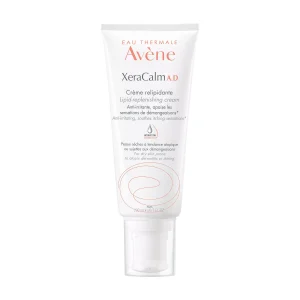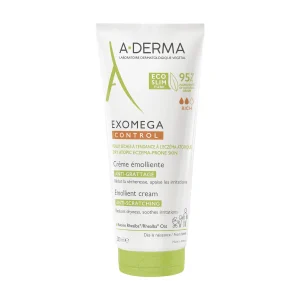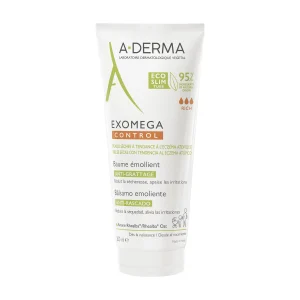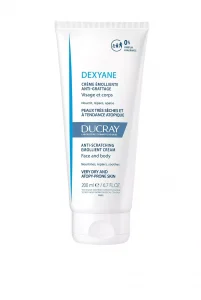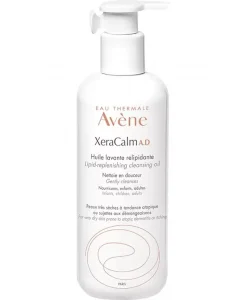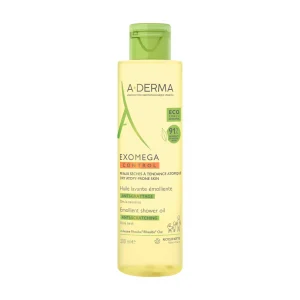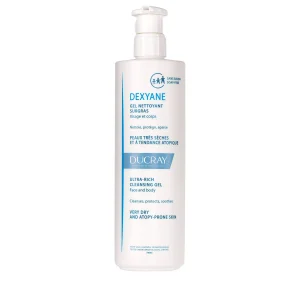
There are several types of eczema. Discoid eczema is a type that causes red, round, or oval patches of inflamed skin. These patches are itchy, scaly and may also ooze and crust. An accurate diagnosis is required for effective treatment. Check out this article from The Dermo Lab in which the dermatologist and cosmetologist Dr. Rasha Amer explains how to diagnose and treat discoid eczema.
What is discoid eczema and what are the symptoms?
According to Dr. Rasha Amer, discoid eczema is an inflammation of the skin. A rash that looks like red, coin-shaped disks, or eczema patches appears on the skin. The skin becomes itchy, red, swollen, and cracked. It is also known as nummular dermatitis or nummular eczema.
Dr. Rasha Amer states that discoid eczema usually affects the limbs, but the rash may be extensive. She adds that there are 2 clinical forms of discoid eczema:
- Acute exudative discoid eczema: papules, blisters, and weeping plaques.
- Dry discoid eczema: subacute or chronic dry erythematous plaques.
Severe discoid eczema may present with numerous small or large itchy patches.
The patches of skin are usually very itchy. The itching is often worse at night and can disturb your sleep. Some people complain that the skin patches burn or itch.
Discoid eczema is a chronic condition, which means that it lasts a long time or recurs. It is not contagious, so you cannot get it by touching or being near someone who has it.
What causes discoid eczema flare-ups?
Dr. Rasha Amer indicates that the cause of discoid eczema is unknown. Some cases are associated with staphylococcus aureus infection. She adds that discoid eczema can be precipitated by:
- A localized injury such as a scratch, an insect bite, an impetigo or a burn
- Dry skin
- Contact dermatitis
- Varicose veins
- Cold weather
People with nummular eczema also tend to have sensitive, easily irritated skin.
The following factors can also contribute to the development of discoid eczema:
- Stress
- Environmental irritants, such as soaps, metals, and formaldehyde
- Surgery
- Use of cosmetic products that cause irritation
- Certain medications, including isotretinoin and interferon
How is discoid eczema diagnosed?
There is no specific test for discoid eczema. It is diagnosed by visual examination and by ruling out other possible causes of the rash.
In some cases, a doctor can identify discoid eczema simply by looking at the rash and taking your medical history. Often, however, your doctor will want to do a skin scraping or skin biopsy to rule out other possible skin problems.
In a skin biopsy, a small piece of skin is removed for study under a microscope. Your doctor will look for fungi or bacteria that may be causing your rash. He may also decide to do a patch test to look for allergies.
Discoid eczema can sometimes be confused with:
- Ringworm
- Psoriasis
- Lichen aureus
- Contact dermatitis
It is important to make the right diagnosis because, although the symptoms are similar, each of these skin problems is treated differently.
How is nummular eczema treated?
The main goals of treatment are to clear up your skin and relieve your discomfort. To do this, your treatment plan may include a treatment designed to:
1- Moisturize your skin
It is likely that you have extremely dry skin. To add moisture to your skin, which will help it heal, you may need to:
- Take a daily bath or shower for up to 20 minutes in warm water.
- Apply moisturizer as directed throughout the day, including on wet skin a few minutes after bathing.
- Use a humidifier in your bedroom, and keep the room cool and moist.
Moisturizer plays an essential role in healing your skin. Your doctor may recommend a hypoallergenic, fragrance-free moisturizing cream or ointment instead of a lotion. Creams and ointments hold water in the skin better than lotions. More water in the skin can help you heal faster.
Here are some moisturizers we swear by to help maintain the skin’s natural microbiome for a healthy skin environment and to seal in moisture.
Eau Thermale Avene XeraCalm A.D Lipid-Replenishing Cream
A-Derma Exomega Control Emollient Cream
A-Derma Exomega Control Emollient Balm
Ducray Dexyane Anti-Scratching Emollient Cream
2- Avoid irritating your sensitive skin
Dry, sensitive skin is more likely to experience frequent flare-ups of discoid eczema. Therefore, your treatment plan may include instructions that can help you avoid irritating your skin.
You may need to:
- Wear loose cotton clothing.
- Avoid sitting near a fireplace, radiator, or other heat sources.
- Avoid soaps, lotions, perfumes, and similar scented products.
- Protect your skin from even minor injuries.
- Use only a mild, non-drying cleanser to wash your skin, applying it only to the skin that needs to be washed, such as the armpits, feet, and groin.
The following non-irritating cleansers are a great way to relieve symptoms of eczema while keeping your skin clean and healthy.
Eau Thermale Avene XeraCalm A.D Lipid-Replenishing Cleansing Oil
A-Derma Exomega Control Emollient Shower Oil
Ducray Dexyane Ultra-Rich Cleansing Gel
3- Deal with itching
The itching of discoid eczema can sometimes be unbearable. Follow these steps to reduce the itching:
- Place cool washcloths or ice packs on the rash to numb the area.
- Apply a thick moisturizer. Remember, as mentioned above, to avoid products containing fragrances or dyes, which can further irritate the skin.
- Use a damp cloth. Apply a damp cloth directly to the skin, then cover it with a dry blanket. You can leave this blanket on overnight if the itching is worse at night.
- Keep your rash covered with soft pajamas or a blanket if you tend to scratch while you sleep.
4- Treat pimples and patches on your skin
To get rid of eczema, your dermatologist will prescribe medication or mild treatments. Most people will apply one of these medications:
- Topical steroids
- Topical calcineurin inhibitors (TCIs) (tacrolimus or pimecrolimus)
All of these medications can reduce inflammation and irritation.
For best results, you may need to apply your medication to wet skin immediately after bathing. This can help the medicine heal your skin faster.
If you have extensive lesions and patches, you may need a stronger treatment. Your dermatologist may prescribe medicated dressings to apply or a corticosteroid to take. Some patients receive a corticosteroid injection. Dr. Rasha Amer indicates that antibiotics, oral antihistamines, and phototherapy can be used as well.
Many people seek natural treatment for discoid eczema. These remedies cannot cure eczema, but they can help manage symptoms and prevent flare-ups.
Are there any possible complications?
Bacterial infection of a discoid eczema plaque can occur and should be treated with antibiotics. Care should also be taken to avoid scratching itchy patches of skin. If you scratch a patch of skin too much, scarring can occur.
After a patch of discoid eczema has healed, there are no residual signs in many people. However, in some people, the skin in the affected area may have a permanent brown discoloration. In others, the affected area of the skin may become paler than the surrounding skin.
Dealing with a chronic skin condition is never easy. When you have a flare-up, the pain and itching can impact your life.
The good news is that discoid eczema can be effectively managed with careful and regular treatment. Over-the-counter products are rarely helpful for this type of eczema. Instead, make an appointment with your doctor to get the right diagnosis and treatment.
Last Updated on February 26, 2024

